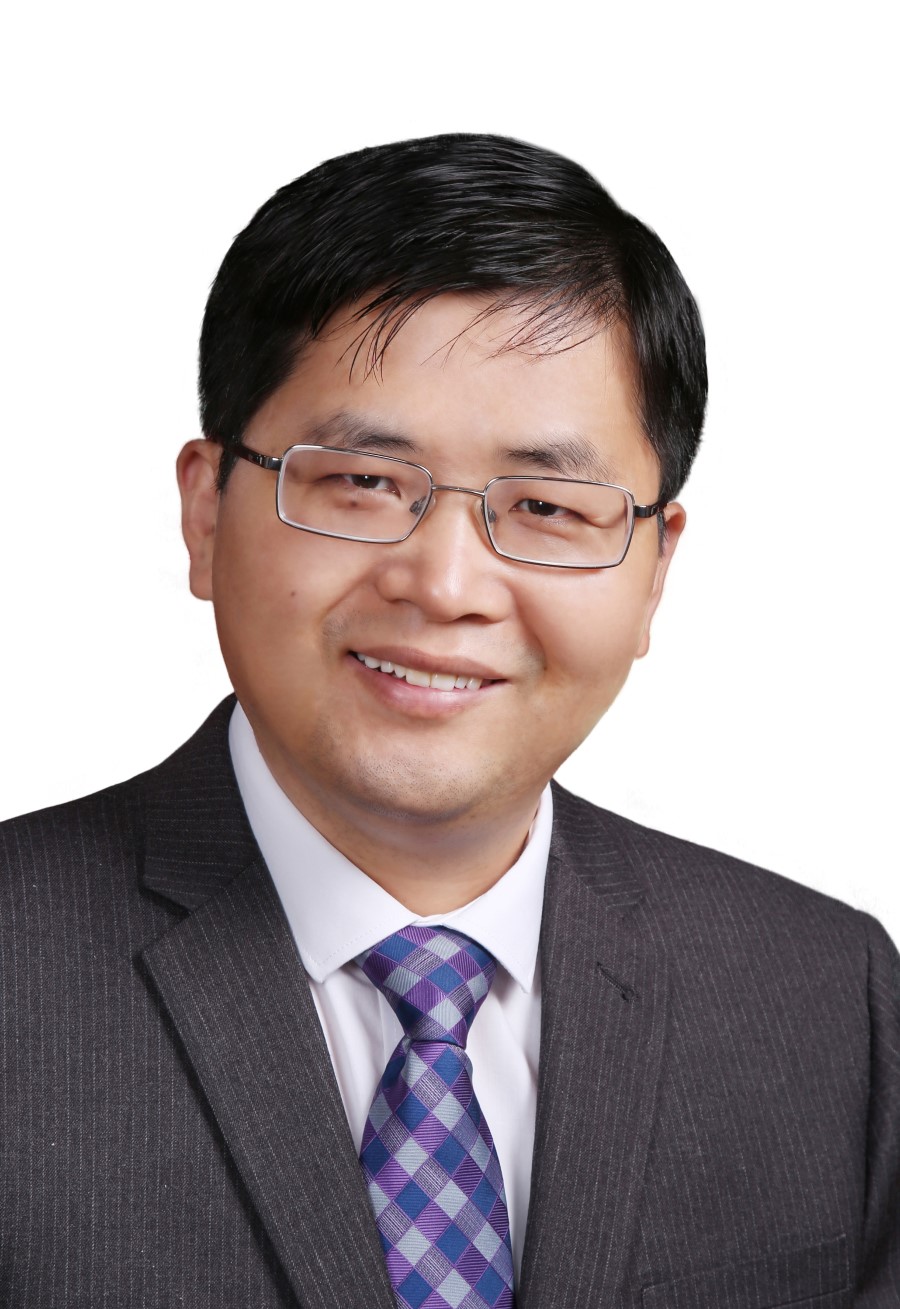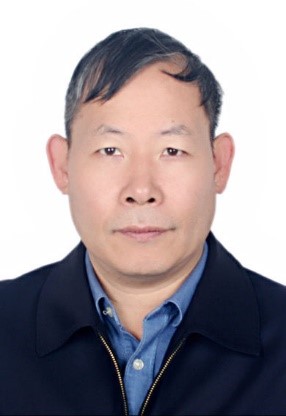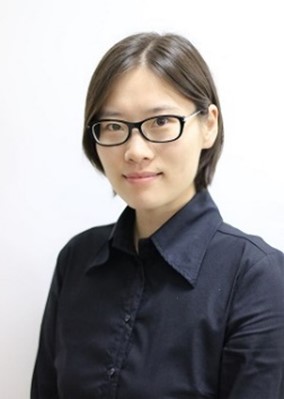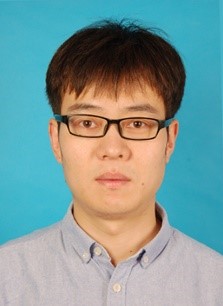Keynote Speakers
Keynote Speaker Ⅰ

Prof. Haibin Duan, Beihang University
Title: Fully Autonomous Flying: From Collective Motion in Bird Flocks to Unmanned Aerial Vehicle Autonomous Swarms
Abstract: In complex and dynamic mission environments, a single air robot or Unmanned Aerial Vehicle (UAV) will suffer from fatal drawbacks, such as the limitation in sensing range, computing capacity, and weapon power. Therefore, the usage of UAV autonomous swarms for mission implementation will be a better choice for the dilemma single UAVs plunge in, which requires the capacity of precise real-time perception of emergency, autonomous decision making, and mission re-planning, based on pre-programmed flight plan or more complex dynamic automation system instead of remote control from ground control stations. In this talk, the relation between collective motion in bird flocks and the autonomous swarms of multiple UAVs is explored. Due to the similarity between UAV swarms and bird flocks in essence, establishing their mapping relation will provide a novel but feasible approach to the fully autonomous UAV swarm control. The recent progresses in biologically UAV autonomous swarms will also be highlighted.
Biography: Haibin Duan is currently a professor with the School of Automation Science and Electrical Engineering, Beihang University (BUAA), Beijing, China, and the vice director of the State Key Laboratory of Virtual Reality Technology and Systems, BUAA. He received the National Science Fund for Distinguished Young Scholars of China in 2014. He was also enrolled in the Chang Jiang Scholars Program of China in 2018, Scientific and Technological Innovation Leading Talent of “Ten Thousand Plan”-National High Level Talents Special Support Plan in 2017, and Top-Notch Young Talents Program of China in 2012, Program for New Century Excellent Talents in University of China in 2010, and Beijing NOVA Program in 2007. He is the director of Technical Committee on Guidance Navigation and Control (TCGNC), Chinese Society of Aeronautics and Astronautics (CSAA), and the director of Technical Committee on Unmanned Aerial Systems Autonomous Control (TCUASAC), Chinese Association of Automation (CAA). He is the Editor-in-Chief of Guidance, Navigation and Control, Associate Editor of the IEEE Transactions on Cybernetics, and IEEE Transactions on Circuits and Systems II: Express Briefs. He has authored or coauthored more than 70 publications and 4 monographs. His current research interests are bio-inspired intelligence, and unmanned systems swarm autonomous control.
Keynote Speaker Ⅱ

Prof. Zhendong Sun, Shandong University of Science & Technology
Title: Nonlinear control of the MEMS torsional micromirror
Abstract: Micro-Electro-Mechanical Systems (MEMS) torsional micromirror plays an important role for optical communications and biomedical imaging. The performances and limitations of these applications are highly dependent on the micromirror in systems. This talk briefly reviews the control problems in the micromirror based applications and presents effective nonlinear controllers to improve the transient and tracking performance of MEMS micromirror for optical switching and imaging application.
Biography: Zhendong Sun obtained the BS degree in Applied Mathematics at the Ocean University of China in 1990, the MS in Cybernetics and Operational Research at Xiamen University in 1993, and the Ph.D. degree at the Beijing University of Aeronautics and Astronautics in 1996. He had been Postdoctoral Research Fellow with Tsinghua University; Associate Professor with Beijing University of Aeronautics and Astronautics; Senior Research Fellow with National University of Ireland, Maynooth; Professor with South China University of Technology; and Researcher with the Academy of Mathematics & Systems Science, Chinese Academy of Sciences. Currently he is with the College of Electrical Engineering & Automation, Shandong University of Science & Technology, as a Professor. Professor Sun’s current research interests are in the fields of switched and hybrid systems, nonlinear control systems, and applications to MEMS devices. He is author of two monographs on switched systems. He served as Associate Editor of IEEE Transactions on Automatic Control and Subject Editor of International Journal of Robust & Nonlinear Control.
Keynote Speaker Ⅲ

Prof. Lu Liu, City University of Hong Kong
Title: Event-Triggered Control of Uncertain Euler—Lagrange Multi-Agent Systems
Abstract: Cooperative control of multi-agent systems has received considerable attention in the robotics and control community over the past two decades. This is mainly because of its great potential in real-world applications, such as search and rescue by a team of unmanned ground/aerial vehicles, and ocean sampling using a fleet of underwater gliders. In this talk, the consensus of uncertain Euler—Lagrange multi-agent systems over jointly connected directed communication topologies via event-triggered control protocol will be presented. First, the event-triggered control approach will be briefly reviewed. Then for the considered Euler–Lagrange dynamics, which can be used to describe many mechanical and mechanistic systems, such as mobile robots, robotic manipulators, and spacecraft, a distributed event-triggered control strategy is proposed to deal with the consensus problem over jointly connected digraphs. The proposed event-triggered protocol is fully distributed, that is, the protocol does not depend on global information about the jointly connected digraphs. Meanwhile, a minimum inter-event time is guaranteed.
Biography: Dr. Lu Liu received her Ph.D. degree in 2008 in the Department of Mechanical and Automation Engineering, the Chinese University of Hong Kong, Hong Kong. From 2009 to 2012, she was an Assistant Professor at The University of Tokyo, Japan, and then a Lecturer at The University of Nottingham, United Kingdom. After that, she joined the City University of Hong Kong, Hong Kong, where she is currently an Associate Professor. Her research interests are primarily in networked dynamical systems, control theory and applications, and biomedical devices. She received several best paper awards in flagship conferences, including the Best Paper Award (Guan Zhaozhi Award) of the 27th Chinese Control Conference in 2008, and the Shimemura Young Author Award of the 11th Asian Control Conference in 2017. She received the Excellent Young Scientists Fund (Hong Kong and Macao) from the National Nature Science Foundation of China (NSFC) in 2022. Dr. Liu is an Associate Editor of IEEE Transactions on Cybernetics, IEEE Transactions on Fuzzy Systems, IEEE Robotics and Automation Letters, Control Theory and Technology, and Unmanned Systems. She served on the organizing committee or operating committee of several international conferences including General Chair of the 2022 IEEE International Conference on Real-Time Computing and Robotics, General Chair of the 2022 IEEE International Conference on Control and Automation, Program Chair of the 2021 International Conference on Intelligent Control and Information Processing, and Program Chair of 2017 IEEE International Conference on Control and Automation.
Keynote Speaker Ⅳ

Prof. Jing Na, Kunming University of Science and Technology
Title: High Precision Motion Control for Nonlinear Robotics with Unknown Dynamics
Abstract: Unknown nonlinear dynamics, e.g., frictions, modeling uncertainties, sensor noise and external disturbances, are inherent difficulties encountered in the robotic control system synthesis, which could deteriorate the control performance. In this talk, we will introduce two recently developed methods to handle unknown nonlinear dynamics for robotic motion control designs: adaptive control with guaranteed estimation convergence and unknown system dynamics estimator (USDE). First, a new adaptive learning framework driven by estimation error is presented, which can be incorporated into the adaptive control for robotics to remedy the use of acceleration measurement and retain the finite-time convergence of tracking error and estimation error simultaneously. Moreover, the design of USDE with simple low-pass filter operations and algebraic calculations is introduced to handle the lumped unknown dynamics in the robotic systems. Those developed ideas are also extended for flexible manipulators and bilateral teleoperations.
Biography: Dr Jing Na is currently a Professor with the Faculty of Electrical & Mechanical Engineering at Kunming University of Science & Technology. He received the B.S. and Ph.D. degrees from the School of Automation, Beijing Institute of Technology, China, in 2004 and 2010, respectively. From January 2011 to December 2012, he was a Monaco/ITER Postdoctoral Fellow with the ITER Organization, France. From January 2015 to December 2016, he was a Marie Curie Fellow with the University of Bristol, UK. Since 2010, he has been with the Kunming University of Science & Technology, where he was promoted to be a full Professor in 2013. He has hold also visiting positions with the Universitat Politecnica de Catalunya, Spain. His current research interests include parameter estimation, adaptive control, and nonlinear control with application to vehicle systems, servo mechanisms and energy conversion plants (e.g., engine, wave energy convertors, etc.). He has authored/co-authored more than 100 peer reviewed journal and conference papers. Dr Na has been awarded the 2017 Hsue-shen Tsien Paper Award. He is currently an Associate Editor of the IEEE Transactions on Industrial Engineering, and Neurocomputing. He has also served as an international program committee Chair of ICMIC 2017 and DDCLS 2019 and IPC member of many prestigious international conferences.
Keynote Speaker Ⅴ

Prof. Tiantian Xu, Shenzhen Institutes of Advanced Technology, Chinese Academy of Sciences
Title: Motion control of magnetic soft swimming microrobots towards targeted therapy
Abstract: Untethered, wirelessly controlled microrobots have a broad application prospects for the bioengineering due to their small scales. Rigid microrobots may damage the objects that they manipulate. Therefore, microswimmers made of soft materials, which are more adaptive in confined or complex environments, are still lack of control investigations. Main challenges in closed-loop control remain to be overcome for the soft robots to reach the accuracy and repeatability in applications. We have proposed a closed-loop control method of soft swimming microrobots for three-dimensional arbitrary path following by visual servoing, where the path curve is divided into a series of line segments. Different complicated paths drawn by users through a 3-D mouse without the input of parametric equations are followed by swimming robots during experiments. The control method with friendly user interaction and good performance is able to be integrated easily into any generic purposely non-holonomic robots.
Biography: Tiantian Xu is currently Professor in Shenzhen Institutes of Advanced Technology, Chinese Academy of Sciences. She received the M.S. degree in Industrial Engineering from the Ecole Centrale Paris, France, the Engineer degree (∼M.S. degree) in Mechanic from Supmeca, France, in 2010, and the Ph.D. degree at the Institute of Intelligent Systems and Robotics (ISIR), University of Pierre and Marie Curie, Paris, France, in 2014. She worked for the Chinese University of Hong Kong as a postdoctoral fellow from 2014 to 2016. Her research interests are currently focused on design and control of magnetically actuated soft swimming microrobots for targeted therapy. She has published over 20 IEEE Transactions papers, including TRO, T-cyber, TMECH, TASE, and etc, 4 of them are ESI high cited papers. She has received the NSFC excellent young scholar in 2020, the best application paper award in IROS2019, and the Second Prize of Wu Wenjun Natural Science of Artificial Intelligence in 2021 as first author. She is an associate editor for IEEE TASE and IEEE RAL.
Keynote Speaker Ⅵ

Prof. Ning Sun, Nankai University, Tianjin
Title: Dynamics and Intelligent Control for Robotic Systems Driven by Pneumatic Artificial Muscles
Abstract: With the rapid development of rehabilitation robots and the growing demands for human-robot interaction, modeling and intelligent control of pneumatic artificial muscle (PAM) robots have increasingly attracted the attention of many researchers. It has been a challenging research topic to overcome the effects of PAMs’ inherent defects (e.g., high nonlinearities, hysteresis, time-varying characteristics, etc.), despite the merits of lightness, safety, and high power-to-weight/volume ratios of PAMs. In this speech, we will discuss accurate modeling and advanced control for various (e.g., single, serial, parallel, and exoskeleton) PAM robots, which may contribute to their further theoretical research and practical applications. Also, some of our extended and related researches on robotic systems with similar dynamic characteristics will also be discussed briefly, including various (overhead, tower, rotary/boom, and ship-mounted) cranes, amphibious robots, self-balance robots, and metal ingot polishing-oriented industrial robots.
Biography: Dr. Ning Sun is currently a Full Professor with the Institute of Robotics and Automatic Information Systems, Nankai University, Tianjin, China. His research interests include intelligent control for mechatronic/robotic systems with an emphasis on (industrial) applications. He is an IEEE Senior Member. Dr. Sun received the Outstanding Paper Award for the IEEE Transactions on Industrial Electronics, the Machines 2021 Young Investigator Award, the prestigious Japan Society for the Promotion of Science (JSPS) Postdoctoral Fellowship for Research in Japan (Standard), the ICCAR 2022 Young Scientist Award, the Wu Wenjun Artificial Intelligence Excellent Youth Award, the 2019 China 10 Scientific and Technological Developments in Intelligent Manufacturing, several best/outstanding conference paper awards, etc. He has published more than 40 papers in IEEE Transactions or IFAC Automatica, and he has more than 20 granted China invention patents. He serves as an Associate Editor for several journals, including IEEE Transactions on Industrial Electronics, IEEE Transactions on Intelligent Transportation Systems, Journal of Field Robotics, IET Cyber-Systems & Robotics, and IET Control Theory & Applications. In addition, he has been an Associate Editor of the IEEE CSS Conference Editorial Board (including ACC, IEEE CDC) since July 2019, and he is/was an Associate Editor for the top robotics conferences IEEE ICRA and IEEE/RSJ IROS.

